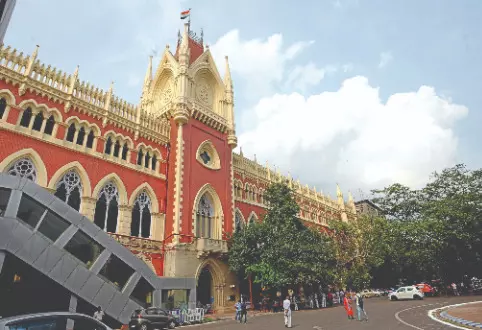Cal HC bars ‘tainted’ candidates from WBSSC fresh recruitment

Soumyadip Mullick
Kolkata: Citing clear directives in the Supreme Court judgement in the school teachers’ recruitment corruption case in West Bengal, the Calcutta High Court on Monday barred tainted candidates from participating in the fresh recruitment process being conducted by the West Bengal School Service Commission (WBSSC).
Justice Saugata Bhattacharya, delivering the ruling, observed that the Supreme Court had unequivocally barred tainted candidates from taking part in the new recruitment process.
The court rejected the state’s argument that the Apex Court order merely denied relaxations to tainted candidates but did not prohibit their participation.
Appearing for the petitioners, senior advocate Bikashranjan Bhattacharya submitted that paragraph 49 of the Supreme Court’s judgment explicitly barred tainted candidates from participating in the fresh selection.
The paragraph concerned stated: “The disabled candidates mentioned in the previous paragraph will be allowed to participate in the fresh selection process, if required, with age relaxation and other concessions. Similarly, other candidates who are not specifically tainted will also be eligible to participate, with appropriate age relaxation. In our opinion, such a direction would be fair and just, as it would allow these candidates to take part in the fresh selection process, which should now be initiated to fill the vacancies.”
Bhattacharya argued that the phrases “not specifically tainted” and “these candidates” clearly referred to untainted individuals’ eligibility for the new recruitment.
In response, senior advocate Kalyan Banerjee, representing the WBSSC, contended that barring tainted candidates from the new recruitment process—after already terminating their jobs—would amount to a violation of their constitutional rights under Article 20(2) which read: “No person shall be prosecuted and punished for the same offence more than once”. He submitted that such exclusion constitutes double punishment, which is prohibited by the doctrine of double jeopardy, and also infringes the fundamental right to life under Article 21.
Bhattacharya countered that Article 20(2) applies only to criminal prosecution and punishment, not to administrative actions in service matters. The court, however, declined other reliefs sought by the petitioners, including a plea to alter recruitment rules by removing the upper age limit of 40 years and modifying other eligibility criteria.
The bench noted that such matters fall within the state’s policy domain and are not subject to judicial interference. Additionally, it observed that any change in rules or extension of the timeline could hinder the state’s ability to complete the recruitment process by the Supreme Court-mandated deadline of December 31, 2025.



